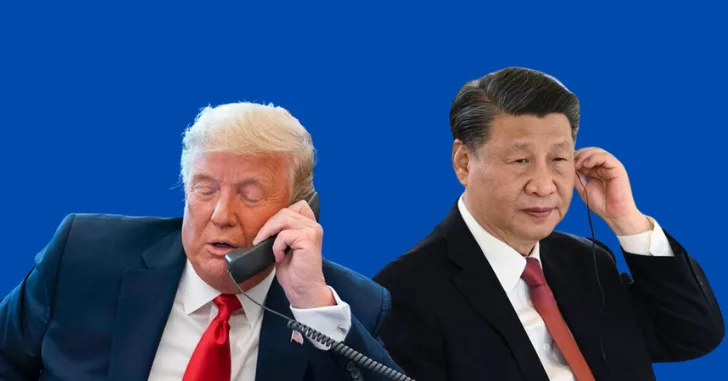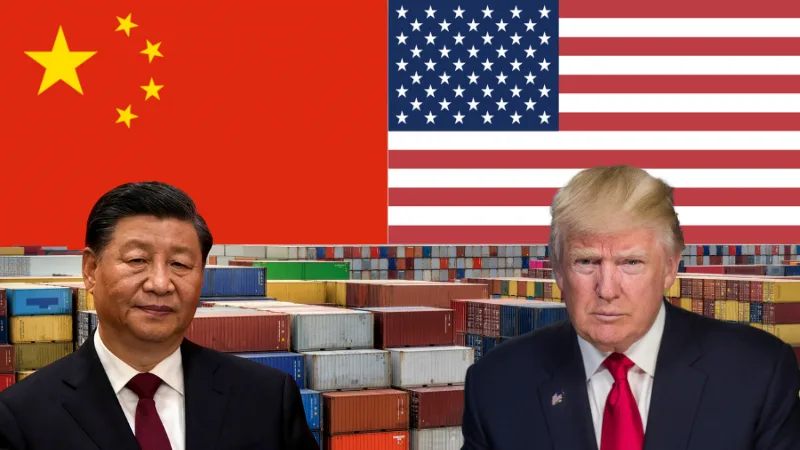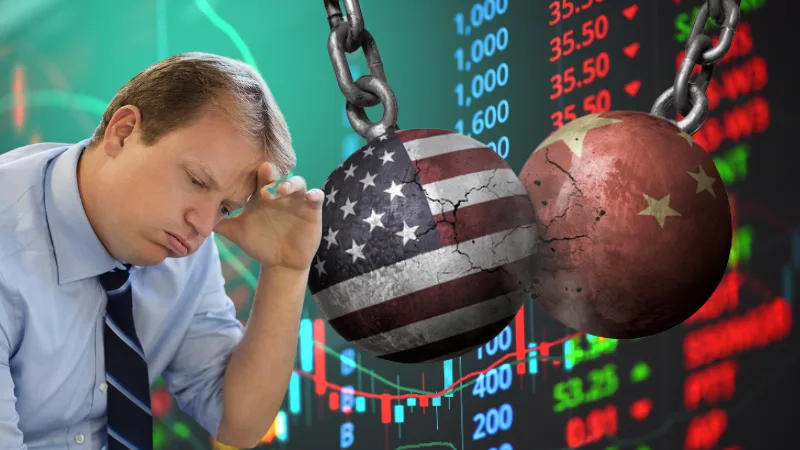In a significant development, U.S. President Donald Trump and Chinese President Xi Jinping engaged in a 90-minute phone call on June 5, 2025, marking their first direct conversation since the intensification of the ongoing trade war. The dialogue, initiated by President Trump, focused almost entirely on trade issues, signaling a potential thaw in the frosty relations between the world’s two largest economies.
Background: A Trade War Escalates
The U.S.-China trade relationship has been fraught with tension, particularly since the beginning of 2025. President Trump’s administration imposed a series of escalating tariffs on Chinese imports, citing national security concerns and trade imbalances. By April, tariffs on Chinese goods had reached a staggering 145%. China retaliated with its own tariffs, peaking at 125%, leading to a near standstill in bilateral trade.
In an attempt to de-escalate, both nations agreed in mid-May to a 90-day truce, reducing tariffs to 30% for U.S. imports from China and 10% for Chinese imports from the U.S.. However, the temporary relief did little to address underlying issues, and tensions remained high.
The June 5 Call: A Step Towards Resolution?
During the June 5 call, President Trump described the conversation as “very good,” stating that it “resulted in a very positive conclusion for both Countries”. The leaders agreed to have their respective trade officials meet soon at a to-be-determined location to continue negotiations.
The U.S. delegation will include Treasury Secretary Scott Bessent, Commerce Secretary Howard Lutnick, and U.S. Trade Representative Jamieson Greer. China’s delegation will be led by Vice Premier He Lifeng.
Key Issues on the Table
One of the central topics discussed was the complexity surrounding rare earth products. President Trump emphasized that there “should no longer be any questions respecting the complexity of Rare Earth products”. Rare earth minerals are critical components in various high-tech industries, and China’s control over their export has been a point of contention.
Additionally, the leaders did not discuss matters related to Russia, Ukraine, or Iran, focusing solely on trade issues. President Trump also mentioned that President Xi invited him and First Lady Melania Trump to visit China, an invitation he reciprocated.
Market Reactions and Economic Implications
The announcement of renewed trade talks had an immediate impact on financial markets. U.S. stock markets, which had been volatile due to trade uncertainties, showed signs of stabilization. The S&P 500, for instance, rose nearly 20% from its April lows, returning to positive territory for the year.
However, analysts caution that the market remains sensitive to developments in U.S.-China relations. The temporary tariff reductions provide a window for negotiation, but the underlying issues, such as technology transfers, intellectual property rights, and trade imbalances, require comprehensive solutions. Reuters
Challenges Ahead
Despite the positive tone of the recent call, significant challenges remain. The U.S. has accused China of slow-walking its pledge to approve the export of critical minerals, a key component of the Geneva agreement. China, in turn, has expressed frustration over new U.S. restrictions on Chinese student visas and warnings against using Chinese semiconductors. Reuters
Moreover, the Trump administration’s imposition of additional export restrictions on chips, justified as national security measures, has been viewed by Beijing as punitive. These actions underscore the deep-seated mistrust and the complexity of the issues at hand.
Conclusion
The 90-minute conversation between Presidents Trump and Xi represents a cautious step towards resolving the protracted trade dispute. While the agreement to resume talks is a positive development, the path to a comprehensive and lasting resolution remains fraught with challenges. Both nations will need to navigate a complex web of economic, political, and strategic interests to reach an agreement that satisfies both sides.
As the world watches closely, the outcomes of these renewed negotiations will have far-reaching implications, not only for the U.S. and China but for the global economy at large.





